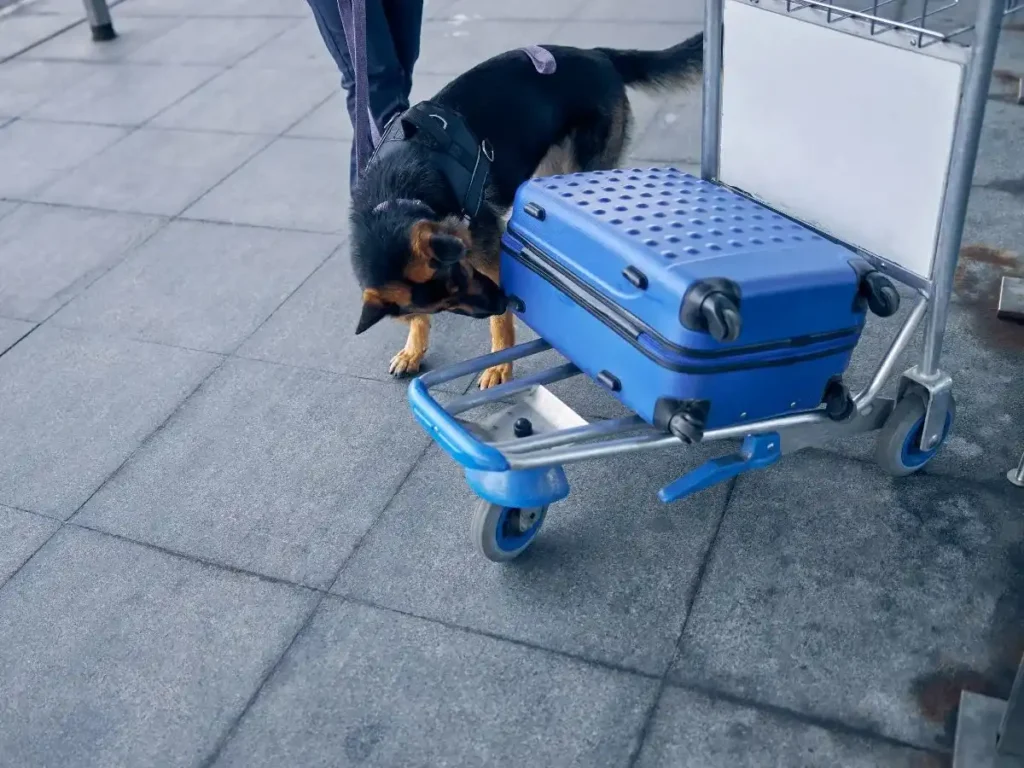Bringing your beloved pet to the UK can be challenging due to the UK’s strict pet rules. If you are planning to relocate to the United Kingdom with your furry companion, it’s essential to understand the pet quarantine regulations in the UK. The UK government has strict legal requirements for pet quarantine to ensure the health and safety of the country’s animal population. If you meet all the UK’s import requirements and have the UK quarantine documentation, your pet will not be required to undergo quarantine upon arrival in the UK. If you don’t meet the UK’s import requirements and rules, your pet will be quarantined for up to four months.
Requirements to Avoid Quarantine
To avoid any issues during the quarantine process, it’s essential to meet specific UK pet import requirements. There are several things you need to do before moving your pets to the UK. Below, we will discuss the requirements to avoid quarantine in detail.
Microchipping
To ensure the safety of your dog, it’s important to get them microchipped. The pet’s microchip must meet ISO standards 11784 and 11785, and the procedure should be carried out by a qualified person, such as a veterinarian, a vet nurse, or someone trained in microchipping.
If your dog has tattooed with an identification number on or before 3 July 2011 and meets all the necessary requirements, then getting a microchip may not be necessary.
However, if the microchip can’t be read or is only readable sometimes, additional steps need to be taken. If the microchip can’t be read at all, you must repeat the preparation process, which includes rechipping, revaccination, and a new blood test. On the other hand, if the microchip can only be read sometimes, your vet can rechip your pet and record the necessary information in the pet passport.
Rabies Vaccination
All dogs require veterinary confirmation that they have been vaccinated against rabies before entering the UK. The timing of the rabies vaccine depends on the pet’s country of origin. If you are relocating your pet to the UK from a country that accepts pet passports and is in listed countries, the vaccine should be given at least 21 days before entry. However, if your pet is coming from an unlisted country, the vaccine should be given at least 4 months before entering the UK. Notably, pets should not receive the vaccine until they are at least 12 weeks old. Pet owners must ensure that their pets receive booster vaccinations on time, as missing even a day will require revaccination and restarting the entire process.
Rabies Titer Test
Pets entering a country with high rabies must be microchipped and then vaccinated for rabies. After that, they need to wait for at least 30 days for a Rabies titer test. After the test, the samples have to be administered at approved laboratories. If the test results are within acceptable range, your pet is eligible to enter England after at least 3 months from the date of the test. You are not required to perform this test if you are not entering the UK from a country with high rabies. If you do not have 3 months’ time before travelling, then your pet will be required to stay in quarantine for 3 months.
Pet Travel Policies
When planning your dog’s travel, you should first authorize in writing someone else who may be travelling with your pet. It’s essential to use a route that’s been approved for pet travel and thoroughly check with your travel company about their policies regarding pet travel. By taking these necessary precautions, you can ensure a safe and comfortable travel experience for both you and your beloved pet.
Pet passport and Health Certificates
Pets that are entering the Uk are required to have an official veterinary health certificate, whether it’s for non-commercial or commercial purposes. The health certificate must be approved by a government veterinarian in the country of origin. The health certificate shows that the pet has undergone a veterinary examination, is up to date with vaccinations, and is fit and healthy for travel to the United Kingdom.
If you are moving your pet to the UK from an EU country or a country that is recognized by the UK’s pet travel scheme, your pet will require a pet passport. However, if you are traveling from a non-listed country, then your pet will need to obtain a third-country veterinary certificate.
Other Requirements
When relocating your pet to the UK, another requirement is that dogs must be treated for tapeworms between 12 and 120 hours before arrival in the country. This should be done by a licensed veterinarian, and the details of the treatment must be recorded in the dog’s pet passport.
Arriving in the United Kingdom
If your pet does not fulfil the requirements, you must book the quarantine facility upon arrival by air, and they must arrive in the country at mentioned airports.
Airports:
- London Gatwick
- London Heathrow
- Manchester
- Leeds Bradford
- Glasgow
- Glasgow Prestwick
- Edinburgh
- Belfast International
Pet owners cannot transport pet to the quarantine centre, only an authorized person from the quarantine centre can bring your pet to the centre. The authorized person will meet your pet when they arrive in the country and get permission for the pet to enter the country and safely transport your pet to the quarantine facility.
Conclusion
Understanding the dog quarantine regulations in the UK is crucial for pet owners planning to relocate to the country. By meeting specific import requirements such as microchipping, rabies vaccination, following pet travel policies, and obtaining the necessary documentation, pets can avoid quarantine upon arrival in the UK. With careful planning and attention to detail, both pets and their owners can look forward to embarking on new adventures in the United Kingdom with confidence and peace of mind. Additionally, staying informed about any updates or changes to the UK’s pet import regulations is essential for a smooth pet relocation to the UK.
Ferndale Kennels: Your Pet’s Gateway to the UKAre you dreaming of bringing your cherished pet to the UK? At Ferndale Kennels, we offer comprehensive assistance in seamlessly navigating the strict pet regulations. Our services include microchipping, arranging rabies vaccinations, obtaining health certificates, and ensuring your pet meets all UK import requirements. With us, you’ll avoid the stress of quarantine and enjoy a smooth transition for your furry companion. Don’t wait—click the shipping enquiry button below to start your journey to the UK! |
Frequently Asked Questions
Do all dogs entering the UK need to undergo quarantine?
No, dogs can avoid quarantine upon entering the UK if their owners meet specific import requirements, including microchipping, rabies vaccination, and obtaining the necessary documentation.
What happens if a pet does not meet all the import requirements?
Moving pets to the UK requires careful attention to meeting the country's import requirements. Pets that do not meet the UK's import requirements may be subject to quarantine upon arrival in the UK. It's essential for pet owners to ensure they fulfill all necessary obligations to avoid quarantine for their pets.
Are there any quarantine facilities available in the UK for pets that do not meet the import requirements?
While the UK has strict quarantine regulations, designated quarantine facilities are available for pets that do not meet the import requirements. However, it's best to avoid quarantine by ensuring compliance with all import regulations beforehand.
How Much Does Pet Quarantine Cost in the UK?
The cost of pet quarantine in the UK can vary based on factors such as the length of stay, facility, and additional services required. Contact Ferndale Kennels for accurate cost estimates.
When will my pet be released if my pet is quarantined?
Your pet will be monitored during quarantine to ensure that they do not have any diseases or infections. When the quarantine facility confirms that your pet is healthy, they will be released.





